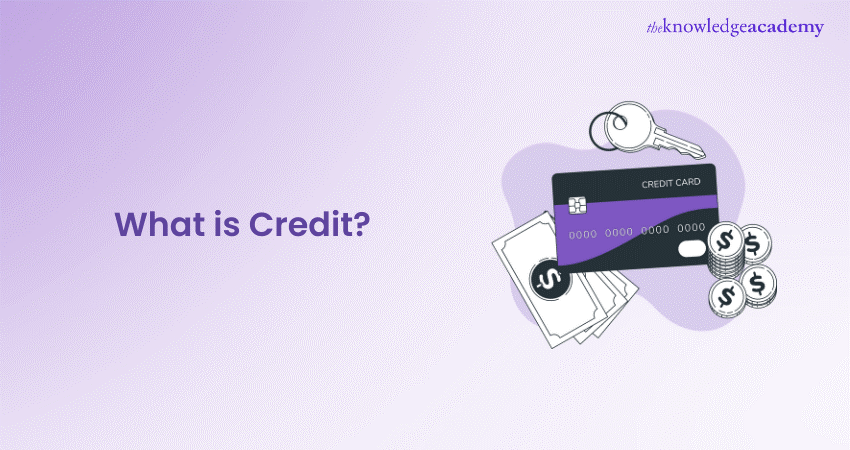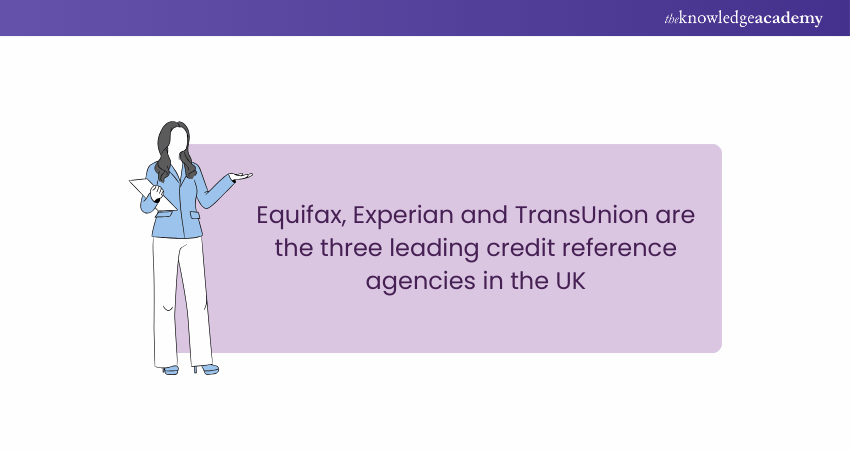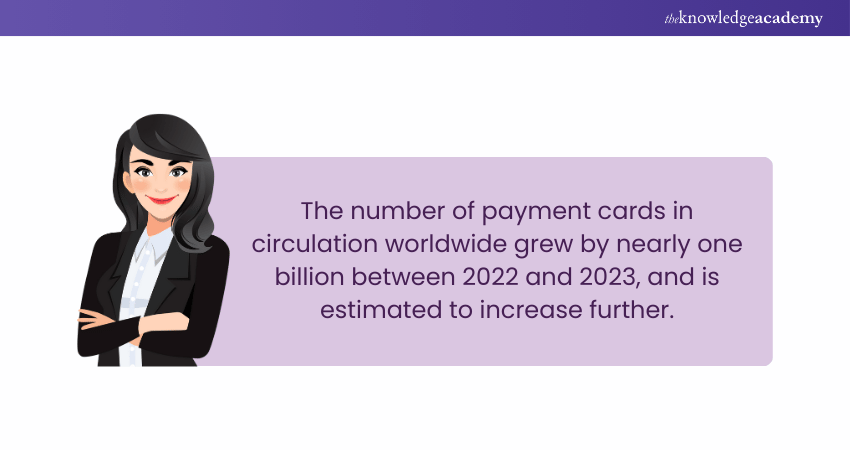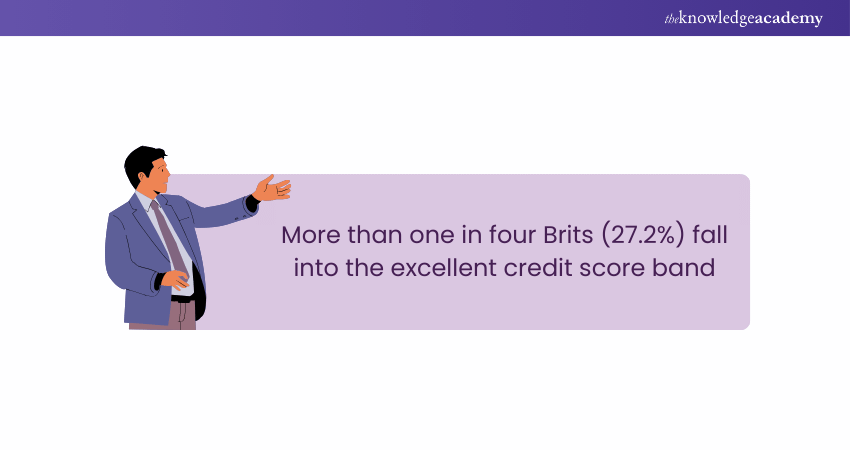We may not have the course you’re looking for. If you enquire or give us a call on 01344203999 and speak to our training experts, we may still be able to help with your training requirements.
We ensure quality, budget-alignment, and timely delivery by our expert instructors.

Think of credit as a financial handshake; a trust that lets you borrow now and pay back later. Credit plays a key role in the financial world, enabling individuals and businesses to access funds for investments, purchases, and growth.
Whether you are planning to buy your dream gadget or starting a business, understanding What is Credit and its associated catch is paramount. This blog uncovers the ins and outs of credit, its types, the importance of credit score and more. So read on and learn how your credit can open doors to smarter financial choices and better opportunities.
Table of Contents
1) Understanding What is Credit
2) Types of Credit
3) How Does Credit Work?
a) Credit Cards
b) Mortgages
c) Personal Loans
d) Store Cards and Credit
e) Car Finance
f) Buy Now Pay Later’
g) Overdrafts
h) Unsecured Borrowing
i) Student Loans
4) Your Credit Score: How It's Calculated?
5) Conclusion
Understanding What is Credit
Credit refers to the ability to borrow money with the promise of repaying it in the future, quite often with interest. You might use credit to purchase a product or service you can’t pay for immediately. You can use different forms of credit to pay for smaller, everyday purchases or apply for other forms to finance large purchases, such as home improvements or a car.
It’s up to lenders to decide whether to give you credit. The credit report and credit score are two ways your ability to access credit is evaluated. Your credit report lists:
1) Your open accounts (along with current balances).
2) Financial credit agreements (mortgages and credit cards).
3) Payment history, including late or missed payments.
4) Electoral roll details that help lenders confirm your current address.
5) Your previous addresses.
6) Any previous debt problems (bankruptcies, county court judgments (CCJs) or insolvencies).
How Does Credit Work?
Credit agreements work in various ways depending on the type of credit, such as revolving, instalment, and secured or unsecured credit. We explain these types below. Simply put:
a) Lenders charge for borrowing.
b) You’ll usually pay interest and sometimes fees.
c) Interest is calculated as a percentage of the amount you owe.
Lenders may turn you down if you've bad credit or no credit. Having little to no credit history is common if you’re new to the UK or have never used credit. Companies may access your credit data when you apply for credit, rent a home, get a job, etc. They may do a credit check to search for information on your credit report.
Gain greater knowledge of managing your finances and accounts by signing up for our Accounting Course today!
Types of Credit
Credit, a cornerstone of the modern financial system, manifests in diverse forms to cater to different needs and financial circumstances. Understanding the numerous types of Credit is vital for individuals seeking to navigate the intricate landscape of borrowing and lending.

Credit Cards
A credit card can be the ideal flexible option for spreading the cost of bigger purchases, accessing cash in an emergency, or helping you consolidate debts. You can use a credit card online, in retail stores, and at compatible cash machines worldwide. Knowing that different interest rates and fees might apply to individual transaction types is helpful.
Mortgages
A mortgage is a loan designed to help you purchase a property against which the loan is secured. Mortgage terms can be as extensive as 40 years, with variable and fixed interest rates available. You may need a deposit to apply for a mortgage. However, it's important to remember that you could lose your home if you can't keep up with your repayments.
Consider the following:
a) On repayment mortgages, you’ll pay more towards interest at the beginning and pay less as you reduce the balance over the mortgage term.
b) On interest-only mortgages, your monthly payments can be lower, but you are not reducing your balance during the mortgage term, and you must repay the full amount at the end.
Personal Loans
A personal loan could be a predictable and reliable way to borrow as it provides a fixed borrowing amount and repayment terms of one to seven years. At the end of your loan term, your balance will be repaid in full as long as you’ve made the required payments. If your interest rates are fixed, your payments will be as well. Additionally, personal loans are available with variable rates, meaning your payment amount could go up or down. You must check the product details carefully.
Optimise your finances by signing up for our Introduction to Credit Control Course now!
Store Cards and Credit
Some retail brands provide credit, allowing you to make purchases at one individual brand or store. Some may offer tailored benefits and loyalty rewards. Like other credit products, fees, interest, and various other charges may apply, and you must make regular repayments. However, these mustn't be confused with cards solely used to collect loyalty points.

Car Finance
Before purchasing a car from a dealership, it’s worth exploring all the financing options:
a) On a Hire Purchase (HP) plan, you must make fixed monthly payments over one to five years. You will own the car outright at the end of your agreement, with no mileage limits.
b) Personal Contract Purchase (PCP) plans provide lower monthly payments over one to four years. At the end of the agreement, you can exchange, return, or pay a lump sum to own the car. Just be aware that return conditions and mileage may apply.
‘Buy Now Pay Later’
Companies like PayPal and Clearpay give you the option of making online purchases now and paying in instalments over the next few weeks or months. This service can be offered with no fees, interest, or impact on your credit score as long as you keep up with your payments. This is ideal for short-term borrowing. If you miss a payment, charges and fees may apply, which could be similar to the concepts discussed in Letter of Credit Interview Questions, where understanding payment terms and conditions is crucial.
Overdrafts
This type of credit is attached to your current account, which is best used as a short-term safety net. Using an arranged overdraft carefully can boost your credit score by:
a) Limiting how much you use it.
b) Paying it off regularly.
c) Staying within your overdraft limit.
The opposite is true in the case of poor Overdraft Management. Even though some building societies and banks will let you use an unarranged overdraft, your credit score may be negatively impacted if you do.
Unsecured Borrowing
In addition to traditional borrowing methods, you might come across options like PayPal Credit when shopping online. These can help you spread the cost of larger purchases over several months. However, as with any form of credit, including those involving the Parties Involved in a Letter of Credit, you must stay on top of repayments to avoid negatively affecting your credit score.
Student Loans
Although often provided at low interest rates, a student loan still qualifies as a form of debt, which can impact your credit eligibility and score until it’s repaid in full. As with other types of credit, missing a student loan payment can impact your credit score
Boost Your Confidence! Explore the most common Credit Controller Interview Questions and get ready for your next interview.
Your Credit Score: How It's Calculated
Your credit score is a three-digit number from 300 to 800 that lenders use to determine if you are a reliable borrower. Your credit score is calculated utilising five main factors:

1) Your payment history.
2) Your credit usage.
3) Length of your credit history.
4) Your credit mix.
5) Whether you've recently applied for new credit.
If you have a high credit score, you can have good credit; if you got a low credit score, you could take various steps to improve it. However, improving your credit score to gain the most competitive loan rates can take months or years.
Enhance your career with essential Credit Controller Skills! Learn what it takes to excel in this role today.
Conclusion
In conclusion, understanding What is Credit is pivotal for navigating the financial industry. From diverse credit types to the significance of credit scores, this understanding empowers individuals to make informed decisions, fostering a secure financial future. Additionally, recognizing the Pros and Cons of Letter of Credit plays a crucial role in making sound financial choices in international trade. Responsible credit management is not just a financial skill but a key to unlocking diverse opportunities.
Attain an in-depth understanding of Credit letters by signing up for The Letters of Credit Training now!
Frequently Asked Questions
What Three Things Have to be Repaid When You Borrow Money?

The three things that must be repaid when you borrow money are:
a) Principal: The original amount of money being borrowed.
b) Loan Term: The time the borrower has got to repay the loan.
c) Interest Rate: The rate at which the amount of money owed increases, expressed in terms of an annual percentage rate (APR).
What Is a Letter of Credit?

A Letter of Credit is sent by a bank that guarantees the seller will receive the entire due amount from a buyer by a specific agreed-upon date. The bank is on the hook for the money if the buyer fails to do so.
What are the Other Resources and Offers Provided by The Knowledge Academy?

The Knowledge Academy takes global learning to new heights, offering over 3,000 online courses across 490+ locations in 190+ countries. This expansive reach ensures accessibility and convenience for learners worldwide.
Alongside our diverse Online Course Catalogue, encompassing 19 major categories, we go the extra mile by providing a plethora of free educational Online Resources like News updates, Blogs, videos, webinars, and interview questions. Tailoring learning experiences further, professionals can maximise value with customisable Course Bundles of TKA.
What is The Knowledge Pass, and How Does it Work?

The Knowledge Academy’s Knowledge Pass, a prepaid voucher, adds another layer of flexibility, allowing course bookings over a 12-month period. Join us on a journey where education knows no bounds.
What are the Related Courses and Blogs Provided by The Knowledge Academy?

The Knowledge Academy offers various Accounting Courses, including the Financial Management Course and the Personal Finance Course. These courses cater to different skill levels, providing comprehensive insights into What is Credit Management.
Our Accounting and Finance Blogs cover a range of topics related to Credit, offering valuable resources, best practices, and industry insights. Whether you are a beginner or looking to advance your Credit Management skills, The Knowledge Academy's diverse courses and informative blogs have got you covered.
Upcoming Accounting and Finance Resources Batches & Dates
Date
 Finance for Non Financial Managers
Finance for Non Financial Managers
Fri 16th May 2025
Fri 18th Jul 2025
Fri 19th Sep 2025
Fri 21st Nov 2025






 Top Rated Course
Top Rated Course



 If you wish to make any changes to your course, please
If you wish to make any changes to your course, please


